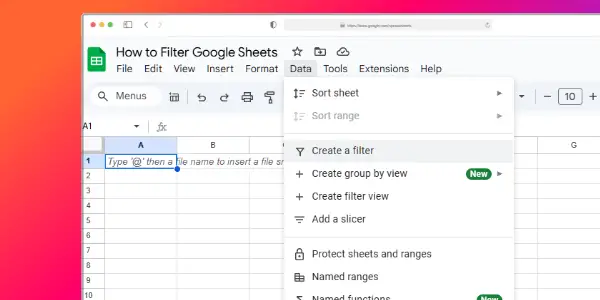Politics plays an integral role in program management and the policy process. It can shape the decision-making process, determine the amount of resources available to a project, and set the agenda of the stakeholders involved.
In this article, we’ll go over some of the ways in which politics can influence the program management and policy process, as well as some of the strategies and techniques you can use to navigate the political landscape:
Definition of Program Management and Policy Process
Program management and the policy process are two overarching processes that have a significant role in government-level decision-making. Program management is the practice of using specialized techniques to manage and execute large-scale, long-term initiatives such as legislation or public works projects.
The policy process is a general term used to refer to the process through which governmental decision makers develop, analyze, implement, revise and evaluate policies, with the goal of achieving desired results for society at large.
Programs that normally exist within government organizations involve a variety of stakeholders from both inside and outside of government; these stakeholders often have different objectives and goals that require consideration as part of an effective program management strategy. The policy process involves multiple steps including research, consultations with stakeholders and other subject experts, legislative debate and ultimately policy formulation amidst competing interests.
Political dynamics play an important role in both program management and the policy process because many decisions involve political considerations such as public opinion, economic impact or ideological persuasions among those in positions of power over resources.
Politicians will often strive to gain support for their ideas by making promises during campaigns or utilizing relationships with key influencers who hold strong opinions on certain issues. Political affiliations can also provide avenues for multiple viewpoints on how best to manage a program or shape a given policy–making process more effective or efficient.
For example, programs tend to move more quickly when one party is able to pass legislation related to it because multiple points of view may be locked out by partisanship during deliberations over feasible solutions among politicians from opposing ideologies.
In this way politics can significantly affect both good program execution as well as the overall effectiveness of legislation passed in the wake of decisions made according to political motives rather than health outcomes or other desired measures impacting society at large in an equitable manner.
Definition of Politics
Politics goes far beyond the surface-level idea of what is often seen in news outlets or around the dinner table. Politics, at its core, is about power. It is the struggle between different interests and ideas to shape who holds control, as well as the policies that dictate how that control is used to shape society. When considering politics in relation to program management and policy process, one needs to pay particular attention to how political ideologies interact with one another and how those interactions shape the decision-making environment.
The main political forces at play in government decision-making are those of partisanship–a preference for one party over another–and ideology–a set of beliefs or values that guide decision-making. Examples of these ideologies or types of politics include:
- Representative democracy and egalitarianism
- Authoritarianism and libertarianism
- Ideology and practical politics
Within each nation there can be significant variations on each ideology depending on prevailing local norms. Political relationships are further complicated by so-called “fourth dimension” actors such as transnational businesses, international organizations such as the World Bank or United Nations, NGOs like Save a Child International and even social movements like Black Lives Matter which all seek to influence policy processes in their favor through political engagement.
Understanding these different forces helps us understand not only why each policy process occurs in a certain way but also helps us better comprehend how various stakeholders may feel about it within their own societies and internationally.
The Role of Politics in Program Management
Politics play an influential role in the way programs are managed and policies are established. As political landscapes change, so do the decisions made concerning program management. Decisions made at the local, state, and federal levels can have a significant impact on the success of any program or policy.
In this article, we will explore the role of politics in program management and the policy process.
Political Influence on Program Goals and Objectives
The goals and objectives of any program or policy initiative are formed by a variety of factors, but no factor is more influential than politics. In order to successfully develop and implement a program, it is important for managers to be aware of the political implications their goal setting will have.
At a high level, politics can influence the level of funding available for a program or policy. Governments may choose to fund certain initiatives based on political convenience; for instance, a council might choose to invest in infrastructure projects leading up to an election as opposed to supporting other initiatives that require long-term investment. By understanding these shifting priorities, managers can make informed decisions on how they will allocate resources towards their programs.
In addition to influencing financial capital, politics can also affect the type and intensity of public support certain initiatives face. Sometimes support derived from public opinion sways political leaders one way or the other regarding their position on a policy; one leader may be more likely to support an initiative if they know it enjoys popular backing while another may abstain due to lack of public interest in the topic.
Managers must keep abreast of local issues and ensure that community stakeholders are engaged with any proposed changes which could impact them in order for these decisions or policies receive maximum public backing.
Lastly, managerial decision making should take into account the potential political ramifications throughout its lifetime; for example if there are expected changes between governing administrations that could prejudice existing programs, then planning should take this into consideration in order for long term goals and objectives remain achievable despite shifts in power structures during its duration.
Overall managers must keep their finger on the pulse with regards to current events and recognize how changing political dynamics will influence their day-to-day operations so that executive expectations remain satisfied as well as any publicly articulated goals they oversee remaining attainable despite differing ideological approaches towards projects at play here.
Political Influence on Program Resources and Funding
Politics play an important role in the success of a program and its ability to reach its objectives. Political factors have a huge impact on the resources, funding and personnel allocated to any given project or program. Political decisions can also influence the content of policies and how they are implemented.
Programs that are able to align objectives with political interests are more likely to be successful, as their requests for resources, funding and personnel will be viewed more favorably than those which do not support political interests. Conversely, projects or programs that oppose the ruling political agenda may be denied resources or hampered by restrictions.
Political considerations represent one of many factors influencing decision making, therefore it is important for program managers to understand how politics affects their programs and which strategies can be used to ensure goals remain aligned with political interests while still achieving desired outcomes. There are two primary strategies:
- Ensure goals are set out clearly when applying for resources and obtaining funding in order to build an effective case.
- Build relationships with key stakeholders in order to enable ongoing coordination throughout the life cycle of a project or program.
By being aware of and prepared for political influences on any given program or project, managers can proactively plan ways of dealing with them in order to maximize the likelihood of successful outcomes while staying within the boundaries set out by broader policies on resource distribution.
Political Influence on Program Implementation and Evaluation
Politics play an integral role in program management, and the way politics are handled affect program implementations, evaluations, and policy processes. When programs are initiated within a political environment, their success is highly dependent on the interests and objectives of those who hold decision-making power. As such, politics can strongly influence the future of the program and its outcomes.
The impacts of political forces on programs can be seen in various ways. For instance, program stakeholders may use political tactics to influence how resources are allocated or to sway support for a particular policy or objectives when making decisions.
Additionally, bureaucratic processes, financial allocations/moving funds may be influenced by internal or external policies that have been shaded with political overtones. Furthermore, involvement of partisan politics in policy discussions might lead to changes that threaten the intended outcome of an implemented program or policy initiative.
Program managers must work sensitively within their environment to identify stakeholders’ political motivations and involve those individuals in meaningful decision-making at all stages of implementation and evaluation.
They should ensure that any opinion brought into the process is given an equal hearing and taken seriously into consideration when making decisions that affect everyone involved in the program’s delivery system. This can help promote inclusive participation from all sides for better management routines as well as better outcomes for all stakeholders involved in implementing programs/policies within a politically charged setting.
The Role of Politics in the Policy Process
Politics plays an important role in the policy process, as it helps to determine how programs and policies are formed and implemented. Politics affects the choices made by policy makers, shapes the reasoning behind the decisions they make, and influence the way that programs are managed.
In this article, we will discuss the various ways in which politics affects the policy process, and how it affects program management:
Political Influence on Policy Development
Politics has a tremendous influence on policy development, both in terms of the opportunities that political contexts offer for implementing policy change and the pressures placed upon government decision makers.
In many ways, politics determines which policies are even developed in the first place. For example, a government may be more likely to pursue new policies when it is facing increased pressure from citizens or civil society organizations than when public interest is low. Similarly, a policy agenda might be strongly influenced by particular political ideologies or party platforms.
At the same time, politics can have an impact on every stage of policy development and implementation. When decisions are made as to what problems deserve attention and what solutions should be sought out, these choices typically bear the stamp of those in power. A decision-maker’s understanding of a situation (including their evaluations of cost-efficiency, feasibility and acceptability) can be heavily shaped by political incentives and goals.
Political actors often exert influence throughout the development process – discouraging points of view that contradict their own beliefs; pressing for issues they hold dear; politicizing messaging or implementation strategies; or pushing for an expedited timeline that meets their own ends. But with such power comes responsibility: politics must also ensure that proposed solutions are carefully evaluated and vetted before approval is given to roll out programs or make changes which could have lasting repercussions for society at large.
Political Influence on Policy Implementation
Policy implementation is best understood as a dynamic and ongoing process. Political influence may have a direct or indirect impact on the way policy is implemented or carried out. Depending on the political context, political influence can give rise to strategies used by those responsible for policy implementation that either promote or hinder effective policy change.
Political influence on policy implementation can begin prior to any actual change taking place, when the issue finds its way onto the agenda and various stakeholders engage in debates to bring about new policies. This includes forming alliances among different politically-oriented groups, which often require compromise and consensus in order to reach agreement on proposed policies. During this period, different political interests may enter into debates over competing solutions and conflicting interests may need to be resolved in order for new policies to be accepted.
Once a policy has been approved, decisions must be taken about how the policy should be implemented, where resources should be allocated and how those implementing it should behave with respect to the policy’s aims. Those responsible for implementation – within government departments, regional offices or individual organizations – will also often face political pressure from different sources (including members of government). This pressures can cause decisions taken by those responsible for implementing the policy to favor certain outcomes over others due to their own judgments about what will play well with their respective constituencies or maintain some kind of equilibrium between competing positions.
Ultimately, all such processes are subject to wider factors such as public opinion and existing power relationships between different parts of society or economic entities that determine which positions possess greater leverage and influence in public discourse over why proposed policies exist in the first place or how they are implemented once accepted into practice by government authorities. As such, managing one’s position relative these forces becomes essential if an organization wishes succeed in making successful changes through a particular set of policies.
Political Influence on Policy Evaluation
The political environment in which policies are created, adopted, implemented and evaluated can profoundly affect how a program is managed and how well it achieves its goals. Political factors at the local, state and national levels often shape the fate of existing programs or the future of proposed initiatives. Depending on a range of factors – including economic conditions and electoral politics – highly successful programs may never get approved or renewed funding; conversely, those with fewer proven merits may receive more support than those better-suited to meet their intended purpose.
In order to accurately assess the impact of politics on policy evaluation, it is important to understand the various ways in which politics can affect management decisions. Variables may include:
- Legislature/executive dynamics
- Ideological influences from elected representatives
- Economic interests of citizens (e.g., taxes)
- Public opinion surveys/opinion makers (e.g., influential media organizations)
- Election cycles/political campaigns
- Broader public opinion trends
Political realities such as these can play a role in determining if an existing policy will remain in effect or be modified or withdrawn altogether; regulations established within Executive Orders or agency rulemaking actions are often particularly vulnerable to political winds of change at any given moment.
It is also important to consider potential implications resulting from political influences on program evaluation activities themselves; often times stakeholder relations that foster varying perceptions among policy actors can lead to biased data collection efforts which afford less scientific basis for forming conclusions about program effectiveness than would otherwise be helpful for making good decisions about what works and does not work when measuring outcomes. In light of such scenarios then, there remains strong justification for continuing to raise awareness among policy makers about this essential element within the broader policy process spectrum so as to encourage greater use in evidence-based decision making; accordant legislative action may prove necessary from time-to-time as well when needed either due to reflect changing realities or specific challenges arising within certain sectors that cross jurisdictional boundaries as technology increasingly enables evermore participants/activists within its domain thereby amplifying potentially powerful forces for influencing where program investments should be made going forward or shifted away?
Conclusion
In conclusion, it is clear that politics has a significant impact on program management and the policy process. From the outset, politicians attempt to shape policy proposals that are aligned with their political values and ideologies. During implementation, political factors have an effect on administrative processes, the distribution of limited resources, operational procedures and forms of evaluation.
In many nations around the world, collaborations between government leaders and civil society organizations have been beneficial in helping to strengthen public administration capabilities both domestically and internationally. Ultimately, by understanding how politics impacts program management and the policy process, governments can effectively make use of available resources in order to bring about beneficial outcomes for its citizens.
How Does Political Influence Impact Program Management and Policy Processes?
Political influence can significantly affect program management and policy processes, complicating decision-making and implementation. Navigating change management politics requires careful strategizing and stakeholder engagement to ensure successful outcomes. Sensitive to the dynamics of power and interests, program managers must skillfully navigate these complexities to achieve their objectives.
Frequently Asked Questions
Q1: How do politics affect program management?
A1: Politics can have a significant impact on program management. Political leaders can make decisions that result in changes to the scope of a project, the resources allocated to it, or the timeline of the project. Additionally, political leaders may be able to influence the stakeholders involved in a project, or the implementation of it.
Q2: How does the policy process affect program management?
A2: The policy process can affect program management in a number of ways. Policy decisions can determine the scope of a project, the budget allocated to it, and the timeline of the project. Additionally, policy decisions can affect the stakeholders involved in a project, as well as the implementation of the project.
Q3: What are the implications of politics on program management?
A3: The implications of politics on program management can be both positive and negative. On the one hand, political leaders can provide additional resources to a project or influence stakeholders to support it. On the other hand, politics can also create delays and roadblocks to a project’s progress.





